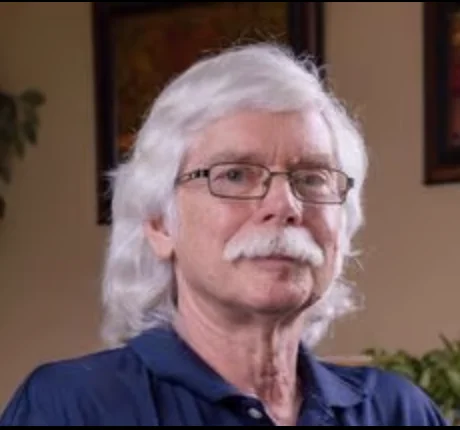Key Takeaways:
- Fact-checking websites like Snopes, FactCheck.org, and PolitiFact play a crucial role in verifying the accuracy of information, helping you discern fact from fiction.
- The International Fact-Checking Network (IFCN) offers a global directory of verified fact-checking organizations, facilitating access to credible information worldwide.
- Tools such as Google Reverse Image Search and TinEye are vital for debunking misleading images and understanding the true context behind photographs.
- Authoritative sources like the WHO and Our World in Data provide reliable data and statistics for verifying factual claims.
- Browser extensions and educational platforms enhance digital literacy, offering protection against misinformation and fostering a more discerning consumption of information.
n today's digital age, where information spreads faster than ever, discerning fact from fiction can be a daunting task. Whether you're scrolling through social media, reading the news, or listening to political statements, it's crucial to have reliable tools at your disposal to verify the accuracy of the information you encounter. This is where fact-checking websites and tools come into play, serving as indispensable resources for anyone looking to navigate the vast ocean of information online.
Let's explore some of the most reputable fact-checking websites and tools that can help you stay informed and make educated decisions based on accurate information.
Top Fact-Checking Websites to Help You Stay Informed and Make Educated Decisions
1. Fact-Checking Websites
In an era characterized by a deluge of information, fact-checking websites have emerged as lighthouses guiding us toward the shores of truth. Fact-checking websites have dedicated themselves to verifying the factual accuracy of various stories, claims, and statements, covering a wide spectrum from urban legends to political assertions.
- Snopes (snopes.com): One of the oldest and most well-known fact-checking sites, it addresses a wide range of rumors and stories.
- FactCheck.org (factcheck.org): A project of the Annenberg Public Policy Center that checks the factual accuracy of statements made by U.S. political figures.
- PolitiFact (politifact.com): A fact-checking website that rates the accuracy of claims by elected officials and others on its Truth-O-Meter.
- The Washington Post Fact Checker (washingtonpost.com/news/fact-checker): Provides analysis of political claims, assigning Pinocchios for degrees of falsehood.
By offering detailed analyses and rating the truthfulness of claims, these platforms empower you to discern fact from fiction, fostering a more informed and critical society.
2. Bridging the Global Information Gap with International Fact-Checking Network (IFCN)
The International Fact-Checking Network (IFCN) stands as a testament to the global nature of the truth-seeking endeavor. By providing a comprehensive directory of verified fact-checking organizations across the world, the IFCN ensures that no matter where you are, access to credible information is just a few clicks away. This network not only enhances the reliability of information but also promotes cross-border collaboration in the battle against misinformation.
3. Unveiling the Bias with Media Bias/Fact Check
In a world where media bias can significantly influence public perception, Media Bias/Fact Check offers an invaluable service by evaluating the factual accuracy and political bias of media sources. By understanding the leanings of different news outlets, you can better contextualize the information they provide, leading to a more nuanced and comprehensive understanding of current events.

4. Seeing is Believing? The Power of Reverse Image Search
In the age of digital manipulation, visual content often requires scrutiny just as much as textual information. Tools like Google Reverse Image Search and TinEye empower you to trace the origins of an image, revealing its context and how it has been used previously. This capability is crucial for debunking misleading images and understanding the true story behind a photograph.
Learn More on detecting fake images: Deepfakes in Elections: What You Need to Know
5. Verifying Data and Statistics
When it comes to verifying statistical claims or health-related information, turning to authoritative sources like the World Health Organization (WHO) and Our World in Data ensures access to accurate and reliable data. These platforms provide comprehensive fact sheets, research, and data on a wide array of topics, allowing you to base your decisions and opinions on solid evidence.
6. Browser Extensions and Educational Tools
Browser extensions like NewsGuard and B.S. Detector, along with educational platforms such as Hoaxy and Checkology, offer additional layers of protection against misinformation.
- NewsGuard (newsguardtech.com): A browser extension that provides trust ratings for news and information websites.
- B.S. Detector (bsdetector.tech): A browser extension that alerts users to unreliable news sources.
- Hoaxy (hoaxy.iuni.iu.edu): A tool that visualizes the spread of claims and fact-checking online, showing how information (and misinformation) spreads on social media.
- Checkology (checkology.org): A virtual classroom designed to teach students how to navigate digital information, including lessons on fact-checking and identifying misinformation.
By evaluating the credibility of websites and visualizing the spread of information online, these tools enhance your digital literacy, making you a more discerning consumer of information.
In conclusion, as we navigate through the complexities of the digital age, fact-checking websites and tools serve as essential allies in our quest for truth.
By equipping ourselves with the right resources, we can foster a more informed, critical, and discerning society. Remember, in the battle against misinformation, knowledge is your most powerful weapon.















.png)
